High Court judge recommends fresh probe into Omagh bombing
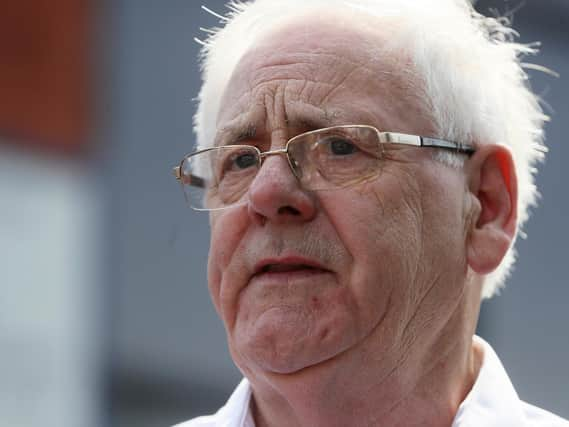

Delivering judgment in a legal challenge against the UK Government’s refusal to hold a public inquiry, Mr Justice Horner said a human rights compliant probe is needed to examine whether a more “proactive” security approach against dissident republican terrorists in the lead-up to the Real IRA bombing may have thwarted it.
The outrage in August 1998 killed 29 people, including a woman pregnant with twins. It was the worst single atrocity of the Northern Ireland conflict.
Advertisement
Hide AdAdvertisement
Hide AdEight years ago, Michael Gallagher, whose son Aiden was killed in the blast, launched the judicial review against the UK Government’s refusal to order a public inquiry into security failings prior to the bombing.
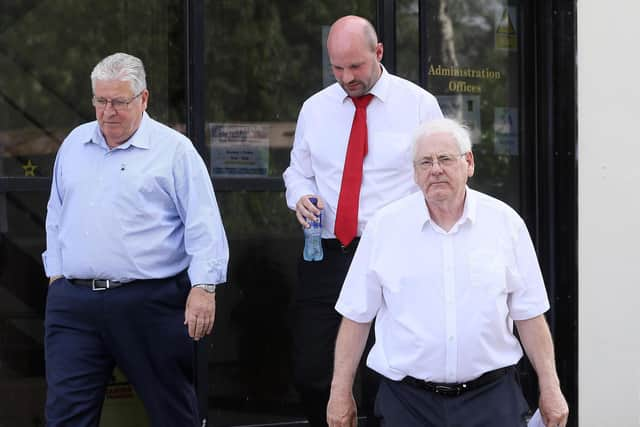

Delivering the long-awaited judgment in Belfast High Court, Mr Justice Horner said: “I am satisfied that certain grounds when considered separately or together give rise to plausible allegations that there was a real prospect of preventing the Omagh bombing.
“These grounds involve, inter alia, the consideration of terrorist activity on both sides of the border by prominent dissident terrorist republicans leading up to the Omagh bomb.
“I am therefore satisfied that the threshold under Article 2 ECHR (European Convention on Human Rights) to require the investigation of those allegations has been reached.”
Advertisement
Hide AdAdvertisement
Hide AdMr Justice Horner said he was not going to order that the probe takes the form of a public inquiry, explaining he did not want to be “prescriptive”.
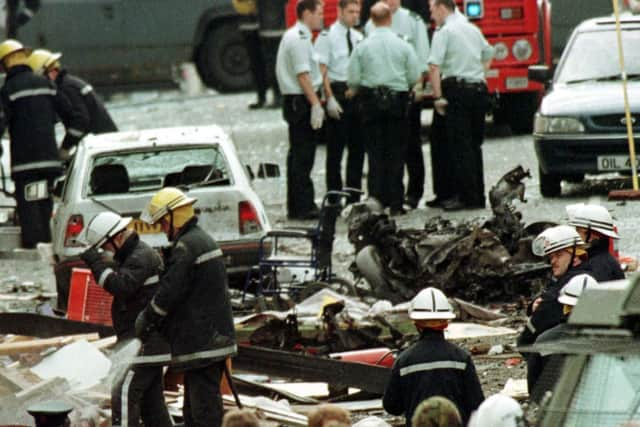

He also said he did not have the powers to order the authorities in the Irish Republic to act, but he expressed hope the Irish Government would take a decision to investigate events around the bombing.
“I am not going to order a public inquiry to look at the arguable grounds of preventability,” he said.
“I do not intend to be prescriptive. However, it is for the government or governments to hold an investigation that is Article 2-compliant and which can receive both open and closed materials on the designated grounds.
Advertisement
Hide AdAdvertisement
Hide Ad“It is not within my power to order any type of investigation to take place in the Republic of Ireland but there is a real advantage in an Article 2-compliant investigation proceeding in the Republic of Ireland simultaneously with one in Northern Ireland.
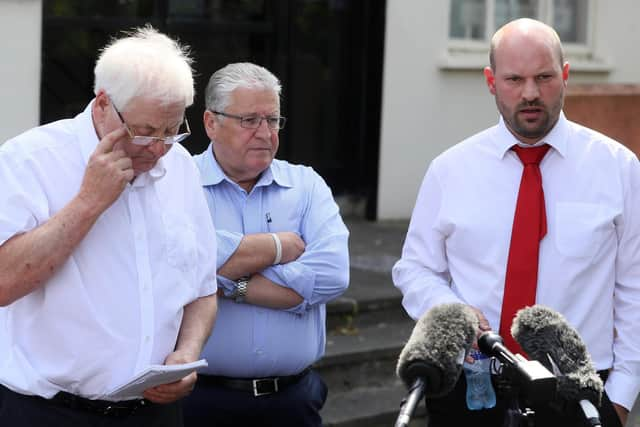

“Any investigation will have to look specifically at the issue of whether a more proactive campaign of disruption, especially if co-ordinated north and south of the border, had a real prospect of preventing the Omagh bombing, and whether, without the benefit of hindsight, the potential advantages of taking a much more aggressive approach towards the suspected terrorists outweighed the potential disadvantages inherent in such an approach.”
In a brief hearing, Mr Justice Horner only read the conclusion of his judgment to the court on Friday.
He explained he was unable to read the full open judgment setting out his reasoning because the person whose job it was to check the document to ensure it did not contain sensitive material was self-isolating with Covid-19.
Mr Gallagher described the ruling as “absolutely amazing”.
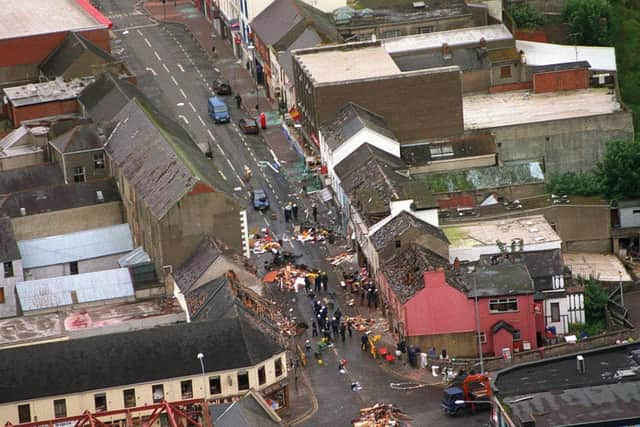

Advertisement
Hide AdAdvertisement
Hide Ad“We feel vindicated, this has been a great day for the families,” he said.
“We just hope that both the British and Irish governments, as the judge has recommended, will look at these issues and move them forward very quickly.”
He added: “We knew from, really, over 20 years, that this was a preventable atrocity, but it’s one thing for me to say it, it’s an entirely different thing for a senior High Court judge to.
“I just felt sadness on one side and relief on the other that, you know, we got it right and people have looked at this and believed us.”
Advertisement
Hide AdAdvertisement
Hide AdMr Gallagher said a public inquiry was the only form of investigation that could answer the questions around Omagh.
“We hope today is the beginning of the end, not the end,” he said.
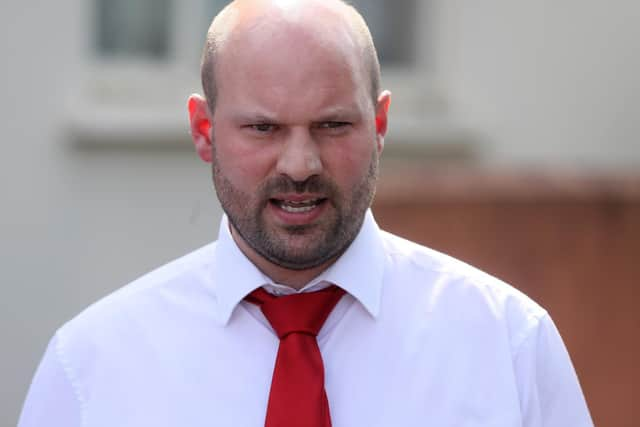

“This is a huge step forward for justice and for the Omagh families.”
The UK Government said it would take time to consider the judgment while Irish premier Micheal Martin said his government would examine all the options and would do what is “necessary” to uphold citizens’ rights.
Advertisement
Hide AdAdvertisement
Hide AdMr Gallagher launched his action against former Northern Ireland secretary Theresa Villiers after she declined to order a public inquiry.
Ms Villiers argued a probe by former police ombudsman Dr Michael Maguire was the best way to address any outstanding issues.
In the legal case, Mr Gallagher claimed that intelligence from British security agents and Royal Ulster Constabulary officers could have been drawn together to prevent the dissident republican bombing.
On August 4 1998, 11 days before the bombing, the RUC received an anonymous telephone call warning there would be an “unspecified” terrorist attack on police in Omagh on August 15.
Advertisement
Hide AdAdvertisement
Hide AdThe force’s Special Branch, which handled intelligence from agents, took limited action on the information and a threat warning was not sent to the sub-divisional commander in Omagh, an investigation by former police ombudsman Baroness Nuala O’Loan found.
An RUC review concluded in 2000 that the information should have been passed to the commander.
Responding to the judgment, current Northern Ireland Secretary Brandon Lewis said: “The Omagh bombing was a terrible atrocity that caused untold damage to the families of the 29 people who were tragically killed and the 220 who were injured. The reverberations of that awful event were felt not just in Northern Ireland, but across the world.
“I want to put on record my deep regret that the families of those killed and wounded have had to wait so long to find out what happened on that terrible day in 1998. They deserve answers and I have great respect for their patience, grace and determination.
Advertisement
Hide AdAdvertisement
Hide Ad“We recognise that today the court has set out that there are ‘plausible allegations that there was a real prospect of preventing the Omagh bombing’ and that more should be done to investigate this.
“The UK Government will take time to consider the judge’s statement and all its recommendations carefully as we wait for the full judgment to be published.”
Responding to the judgment, Taoiseach Mr Martin said the Irish Government would do what is “necessary” following the ruling.
“We will analyse that judgment and we will do what is necessary in terms of the citizens on the island of Ireland,” he told reporters.
Advertisement
Hide AdAdvertisement
Hide Ad“I always stand ready to have an open book in terms of any atrocity that was committed which had a cross-border dimension to it in terms of following through in any way we can through the provision of information or indeed to vindicating the rights of people and citizens.
“So, a very open book in terms of how we proceed with this now, but we’ve got to examine the options that are available to us in respect of the conclusions.”